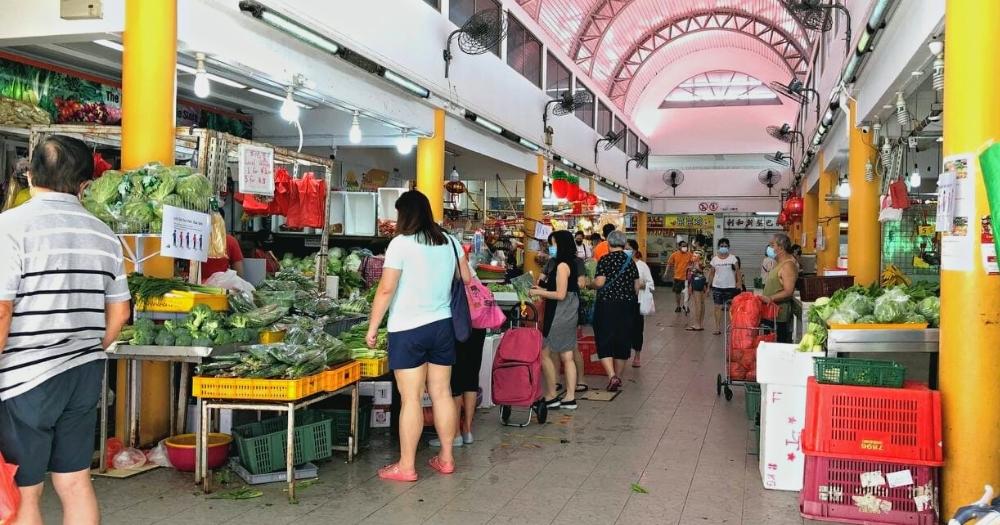Follow us on Telegram for the latest updates: https://t.me/mothershipsg
An unusual bout of wet spells, amongst other factors, have driven vegetable prices up by 30 to 40 per cent in Malaysia.
Considering that 64 per cent of Singapore's leafy vegetables are imported from Malaysia, how has this affected Singaporean consumers?
Impact on local supermarkets
In response to Mothership's queries, a spokesperson from FairPrice said prices of vegetables imported from Malaysia have "generally remained stable".
However, the price of hardy vegetables, like cucumber and bitter gourd, has increased by five to 15 per cent.
The FairPrice spokesperson said the supermarket chain has "progressively adjusted" these prices since early November 2021, and will continue to monitor the situation closely.
Besides Malaysia, the spokesperson said that FairPrice also imports vegetables from Thailand, Indonesia, China, and local farms.
Similarly, a spokesperson from the DFI Retail Group, which operates supermarket chains Cold Storage and Giant, told Mothership that the cost of "a number of" their produce items has increased.
However, they noted that "prices of essentials", including vegetables, are as low as they have been for the past 14 months.
The spokesperson also said that DFI Retail Group "remains committed to supporting Singaporeans", where Giant will continue to keep the price of essentials low.
According to The Straits Times, vegetable stalls in Singapore saw an increase in price as well.
Mothership has reached out to Sheng Siong, and will update the story.
What's happening in Malaysia
Malaysia's monsoon season typically falls between May to September, and again between November to March.
However, the country has been experiencing more rainfall than in previous monsoon seasons, and this trend is expected to persist.
Above average rain – around 20 to 40 per cent more – is forecast over most parts of the country for the month of December 2021, based on its Meteorological Department's report on Nov. 30.
This heavier downpour has hurt vegetable growing conditions, and consequently, the production and price of vegetables, according to a CNA report.
In fact, prices of vegetables in Malaysia tend to increase come monsoon season. However, this time around, it seems that the surge in prices goes beyond merely torrential rainfall.
Citing the secretary of Cameron Highlands Vegetable Growers Association, Chay Ee Mong, CNA listed two other reasons for the veggie price hike: Manpower shortages and rising costs.
According to Chay, it seems that there is just not enough hands to plant, and harvest, vegetables in Malaysia.
Foreign workers, which are heavily relied upon in Malaysia's agriculture industry, have chosen to return home in light of the Covid-19 pandemic.
Farmers were also not able to hire farmhands due to a foreign labour hiring freeze imposed by the Malaysian government in June 2020.
At the same time, farmers faced an increase in production costs, such as fertilisers and farming implements, due to disruptions in the global supply chain.
Singapore Food Agency's response
In response to Mothership's queries, a spokesperson from Singapore Food Agency (SFA) said that weather conditions and market forces will cause a fluctuation in produce prices from time to time.
The SFA spokesperson also pointed out that the situation in Malaysia has affected the vegetable supply for some importers in Singapore. However, these importers have adapted by turning to alternate sources like Thailand, Indonesia, and Vietnam.
SFA has also been diversifying its sources for food items, such as vegetables, and now imports food from more than 170 countries/regions.
The spokesperson said SFA will continue to monitor the situation closely and will work with importers to tap on alternative sources in the event that there is a disruption to a food source and to Singapore's food supply.
Related stories
Top image by Fiona Tan
If you like what you read, follow us on Facebook, Instagram, Twitter and Telegram to get the latest updates.

